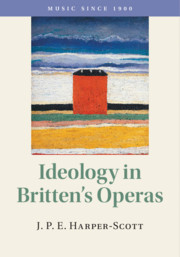6 - A Shadow Falls on Castle Walls
from PART III - NEW WORLD
Published online by Cambridge University Press: 04 September 2018
Summary
Much of his earlier thought on the drama must have seemed to him a steady, though unwitting, progress in the direction of the Nô; he almost invented it himself… He saw the relation to his own work, and of course admired the plays as the work of dedicated artists done for a class of cultivated warrior-aristocrats … Everything [he] could discover about the plays confirmed him in opinions long held. There is in them an overwhelming concern that every detail of text, dance and presentation shall be perfectly controlled;… Acting and dancing were conventional, and the doctrine of imitation was one [he] must have found congenial. There should be no straining after realism.
Frank Kermode, Romantic ImagePoetry makes nothing happen [.]
W. H. Auden, ‘In Memory of W. B. Yeats'The ideologically normative view about ideology is that ‘ideology is what the other guy has'. Ideology is (on this view) what causes people to commit to extreme views on the political left or right, but ideology is not part of the normal, everyday thinking and mode of life of more centrist people, or of the liberal intelligentia, both of whom are aware of its communist-fascist dangers and thus steer a safe course through an inoffensive middle ground of moral equivalence and the avoidance of claiming that any statement (beyond the limited purview, perhaps, of pure mathematics) is ‘true'. On such a view, it is terrible to think or act from a space ‘within’ ideology, and better to remain ‘outside' it, torpedoing it wherever it is to be found.
I dissected and rejected that ideologically normative view of ideology in Chapter 1.1 noted that the most obvious problem with such a conception of ideology is that it is incoherent: even on their own definition, liberalism and moderation-in-all-things are also ideological positions. I call this view ‘ideologically normative’ because it realizes a great desire of ideology, namely that people can be made to feel that they are free from ideology even when they are imprisoned in it.
- Type
- Chapter
- Information
- Ideology in Britten's Operas , pp. 215 - 302Publisher: Cambridge University PressPrint publication year: 2018

